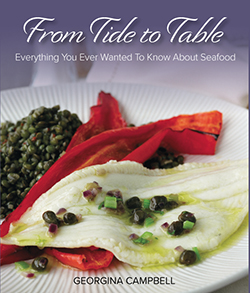GIY - Dig For Dinner
There may not be too many people around who remember the Dig For Victory campaign in WW2, but the importance of food security has taken on a new urgency recently - and GIY founder Mick Kelly and his team have plenty of ideas and advice to help keep us all well fed while also enjoying all the other benefits of gardening. This is an edited version of the March Growers Calendar and you can sign up for the monthly GIY Growers Calendars here...
March marks the official start to the growing season. Though the weather can still be problematic, spring is very much in the air and there's plenty of seed sowing to be done indoors, for later transplanting outside. Significantly, this month we really get stuck into outdoor sowings too, most notably of potatoes around St. Patrick's Day. Generally speaking, March is a great time to start giving your vegetable beds some attention - above all, make sure to enjoy being back out in the veg patch again after the long winter months. Just wait until the sun starts shining... If you're just starting out, there's still time to get a vegetable patch ready. A raised bed can be built in a few hours, and veg can be planted the next day - so don't delay!
.jpg) Grow Along With The GIY Experts
Grow Along With The GIY Experts
Anyone can access the GIY expertise on the website, or by signing up to their courses – this is the ideal time of year to begin the Ultimate Starter Course https://shop.giy.ie/products/ultimate-starter-course - or getting their How To books, including Mick‘s incredibly successful Grow Cook Eat and the GIY Know-It-Allmanac, which is perfect for kids.
 You don’t even need a garden to start growing your own - with a GIY GROWBox kit you can start growing anywhere. See the full range here. You can also get a great range of seeds and both Seeds and GROWboxes are available on Subscription.
You don’t even need a garden to start growing your own - with a GIY GROWBox kit you can start growing anywhere. See the full range here. You can also get a great range of seeds and both Seeds and GROWboxes are available on Subscription.
Harvesting – What's In Season?
March was once called The Hungry Gap because of the dearth of fresh vegetables. But this month the efficient GIYer is enjoying (from the ground and from storage) onions, leeks, parsnips, potatoes, some varieties of lettuce, mint, sprouting broccoli, kale, rhubarb, chard, the first of the spring cauliflowers and cabbage, and spinach (perpetual, spinach beet). Under cover in the polytunnel or greenhouse you could also be harvesting lettuce, rocket, cauliflower and carrots (ready now from late autumn planting).
 March Challenge - Sow Beetroot
March Challenge - Sow Beetroot
Beetroot is one of those vegetables with countless options - boil it, bake it, grate it into salads, make chutneys, wine and even cakes.
If you're one of the lucky GIYers with a polytunnel or greenhouse, you can get sowing straight away. If you're an outdoor grower, try and hold off until April to sow your seeds.
Top Tip: soak seeds in warm water for 20 mins before sowing to aid germination.
Beetroot likes a deep sandy soil. Apply organic fertiliser about a week before sowing if sowing directly into soil. If sowing in module trays first save this step for a week before transplanting. You can sow beetroot seeds direct in the soil, but if you're growing outside, we recommend sowing in a module tray first to transplant later.
Fill the tray or pot with compost and give it a little bang on the table to settle the compost and get rid of any air pockets. For baby beets you can sow in pots (one or two litre) and grow them on a sunny windowsill. Push each seed into the compost about 2cm deep the cover up with some compost and give it a watering.
Beetroot should start germinating in about a week or two, why not send a snap of your seedlings on social @GIYIreland
 Introducing ‘WASTED’
Introducing ‘WASTED’
GIY’s exciting new programme 'WASTED' is a national, peer-to-peer education programme for chefs and food service teams that focuses on reducing food waste in the hospitality industry. Supported by the Department of Environment, Climate Action and Communications (DECC) and Environmental Protection Agency (EPA) as part of the Circular Economy Innovation Grant Scheme, this new initiative aims to engage and educate over 150 chefs and food service team members to reduce food waste in the food service sector.
It's estimated that the Irish food service sector wastes over 200,000 tonnes of food worth €300 million per year – a significant cost that often goes unseen. The WASTED programme centres on prevention as the most successful solution to reducing food waste and aims to create a network of chefs and food waste teams that advocate the adoption of circular economy principals in commercial settings.
So what's involved?
• Registered chefs will have access to a free 8-lesson online course, and related digital resources, presented by some of Ireland's top professional chefs.
• An invite to join the free six-part webinar series featuring professional chefs and zero waste experts.
• The chance to host your own WASTED Supper Club.
• And last but not least, an opportunity to be part of a network of inspired, informed and proactive chefs and food service teams sharing zero food waste skills and knowledge and advocating the adoption of circular economy principals in commercial settings.
If you work in the food service industry and you're interested in learning about how to reduce, or even eliminate, food waste from your business then register to join the WASTED programme.






There are currently no comments
Leave a comment
Not a member? Register for your free membership now!
Or leave a comment by logging in with: